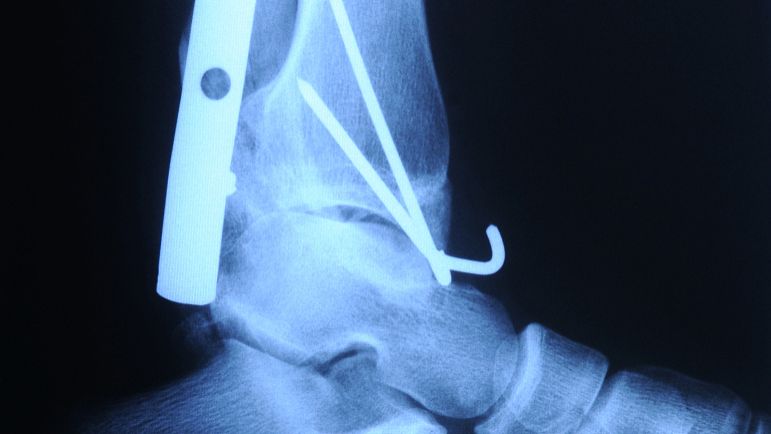德意志第一帝国吧 关注:3,809贴子:2,594
- 7回复贴,共1页
Steyr Mannlicher 8x56R M95/30 short rifle (upgraded and shortened M95), left side.
Image: Frank Rodyns, Belgium

Image: Frank Rodyns, Belgium

same 8x56R Steyr Mannlicher M95/30 short rifle, right side, with the loaded en bloc clip shown in front of the gun.
Image: Frank Rodyns, Belgium

Image: Frank Rodyns, Belgium

Steyr Mannlicher M95/30 rifle, with bolt open and loaded clip partially inserted into action; note how the bolt handle remains horizontal, as opposed to more common rotating bolt actions such as Mauser.
Image: Frank Rodyns, Belgium

Image: Frank Rodyns, Belgium

Drawing of the Mannlicher 1895 straight-pull bolt system; note the curved ribs and cuts marked with the dotted lines, which rotate the bolt head on bolt open/close action.


Bottom view on the Steyr Mannlicher M95 rifle, showing the large opening, through which the empty clip is ejected. M95 long rifle M95/30 rifle
Caliber 8x50R М93 8x56R M30
Overall length 1272 mm 1000 mm
Barrel length 765 mm 480 mm
Weight 3,8 kg empty 3,36 kg empty
Magazine capacity 5 rounds in en bloc clip 5 rounds in en bloc clip
The Steyr M1895 rifle, also known as Steyr-Mannlicher M95 straight pull rifle, was developed by famous Austrian arms designer Ferdinand Ritter Von Mannlicher. Based on his previous M1890 design, this rifle was manufactured in Austro-Hungarian Empire at state arms factories in Steyr (Austria) and Budapest (Hungary). More than 3 millions of M95 rifles were produced between 1895 and 1918. This rifle was issued to Austro-Hungarian army, and, after the fall of the Empire, to the Austrian and Hungarian armies. Originally produced in 8x50R caliber, in 1924 some of M95 rifles were converted to the German 7.92x57 Mauser (also known as 8x57 Mauser) ammunition. These converted rifles featured shorter 58 cm barrels, were designated as M95/24 and used in Yugoslavia and Bulgaria. This conversion gave away with original Mannlicher en bloc clip, and replaced it with Mauser stripper clips. Since 1930 Austria converted most of the M95 rifles to the more powerful 8x56R M30 ammunition, using the same Mannlicher en bloc clips. These rifles were designated as M95/30, and marked with the letter "S" on the receiver ring. Hungary started to convert their rifles to the same 8x56R ammunition in 1931, with the upgraded rifles being marked with the letter "H" on the receiver ring. Many of the M95 rifles were used during the Word War 2 by the Hungarian, Bulgarian and Italian armies, as well as by some German police forces.
Caliber 8x50R М93 8x56R M30
Overall length 1272 mm 1000 mm
Barrel length 765 mm 480 mm
Weight 3,8 kg empty 3,36 kg empty
Magazine capacity 5 rounds in en bloc clip 5 rounds in en bloc clip
The Steyr M1895 rifle, also known as Steyr-Mannlicher M95 straight pull rifle, was developed by famous Austrian arms designer Ferdinand Ritter Von Mannlicher. Based on his previous M1890 design, this rifle was manufactured in Austro-Hungarian Empire at state arms factories in Steyr (Austria) and Budapest (Hungary). More than 3 millions of M95 rifles were produced between 1895 and 1918. This rifle was issued to Austro-Hungarian army, and, after the fall of the Empire, to the Austrian and Hungarian armies. Originally produced in 8x50R caliber, in 1924 some of M95 rifles were converted to the German 7.92x57 Mauser (also known as 8x57 Mauser) ammunition. These converted rifles featured shorter 58 cm barrels, were designated as M95/24 and used in Yugoslavia and Bulgaria. This conversion gave away with original Mannlicher en bloc clip, and replaced it with Mauser stripper clips. Since 1930 Austria converted most of the M95 rifles to the more powerful 8x56R M30 ammunition, using the same Mannlicher en bloc clips. These rifles were designated as M95/30, and marked with the letter "S" on the receiver ring. Hungary started to convert their rifles to the same 8x56R ammunition in 1931, with the upgraded rifles being marked with the letter "H" on the receiver ring. Many of the M95 rifles were used during the Word War 2 by the Hungarian, Bulgarian and Italian armies, as well as by some German police forces.
扫二维码下载贴吧客户端
下载贴吧APP
看高清直播、视频!
看高清直播、视频!
贴吧热议榜
- 1如何评价华莱士推出丁真套餐1885080
- 2一夜爆火的Manus是什么来头1841094
- 3星舰飞船解体炸成大烟花1757756
- 4高彩礼是因为板子打错了地方1693062
- 5《双影奇境》上线大伙体验如何?1482702
- 6考研名师被锤成绩造假删号跑路1308700
- 7AI新星Manus横空出世1173192
- 8群星纪元临界终测开启1105219
- 9哪吒也被拷打血统论了840004
- 10大伙们今年退税还是补税 ?617120















